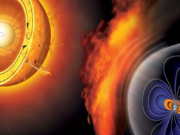
Aviation Space Weather Network Launches
A new international aviation space weather service has begun providing real-time space weather information for…
Viewing 1 - 1 of 1 results

A new international aviation space weather service has begun providing real-time space weather information for…
by FSF Editorial Staff
